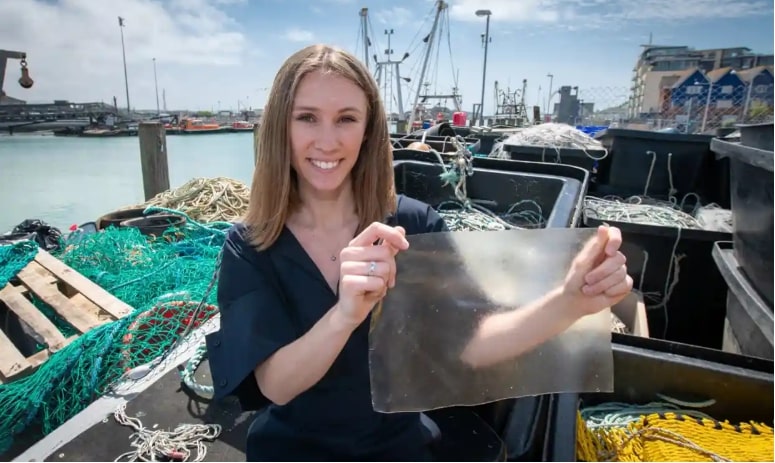A biodegradable alternative to plastic made from fish waste has been recognized with an international 2019 Dyson Award.
The bioplastic is made from material processed from red algae and by-products from the fishing industry. Lucy Hughes, its creator, calls it MarinaTex and is designed to replace single-use plastics that are dangerously harmful to the environment. The organic materials used make
Hughes is a University of Sussex alum who used her talents for design to address the detrimental effects of single-use plastics in the environment. Aside from that, her product is able to tackle the inefficient waste disposal of fish offcuts.
MarinaTex’ organic composition gives it the ability to break down in four to six week in a soil environment. It can be disposed along with food wastes collected from the home.
Red algae act as a binder for the proteins taken from fish skins and scales. This creates a translucent, flexible sheet material that is actually stronger than plastic. Initial tests reveal that despite the material’s strength, it is actually a safe option than its oil-based counterpart.
MarineTex can replace single-use plastics in food packaging and with tons of fish wastes produced globally, the world has just enough to have a continuous supply.
Hughe’s research found that proteins from fish skins and scales were actually the most ideal sources to create the bioplastic.
“Plastic is an amazing material, and as a result, we have become too reliant on it as designers and engineers,” Hughes tells The Guardian. For me, MarinaTex represents a commitment to material innovation and selection by incorporating sustainable, local and circular values into design.”

